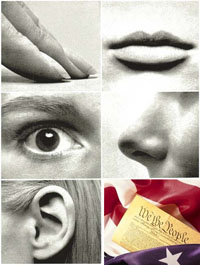Why Sensible History for Everybody?
 The word history refers to three different but related things–to the past, to the stories people tell about the past, and to the formal inquiry into the past and its stories.
The word history refers to three different but related things–to the past, to the stories people tell about the past, and to the formal inquiry into the past and its stories.
In my mind, the best evocations of history are sensible–they are:
- clear and rational (they “make sense”),
- wise and practical (“common sense”), and
- perceptible to the senses (sensory and experiential).
Everybody does not share the same past or even appreciate the same stories, but everybody can and must take part in the process of asking—and learning—about history.
History matters today more than ever. It is popular–Americans purchase historical books and movie tickets, visit historic sites and museums, commemorate anniversaries and historic places, save old buildings and family heirlooms, and research genealogy and local history. It is polemical–commemorations prompt both reflection and protests, curriculum debates spur both devotion and death threats, and historically themed amusement parks draw both acclaim and ire.
All history is public history because, beyond filling course requirements, beyond teaching critical thinking, beyond preparing people for civic engagement, history possesses the power to whisper life, feeling, and meaning into the present human experience. Because the past can be everybody’s subject of inquiry, everybody’s history matters.

